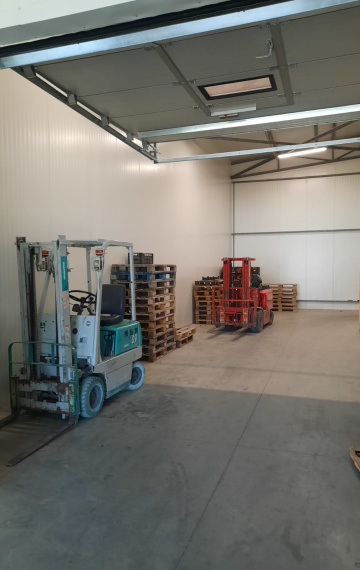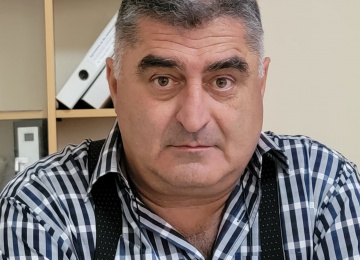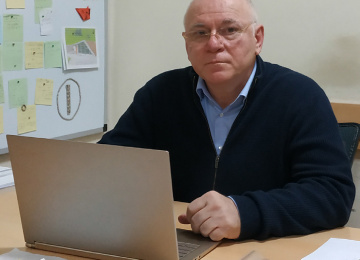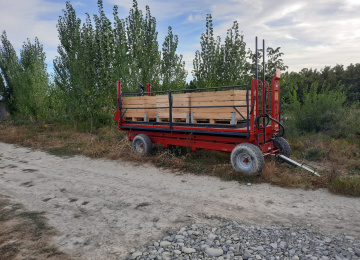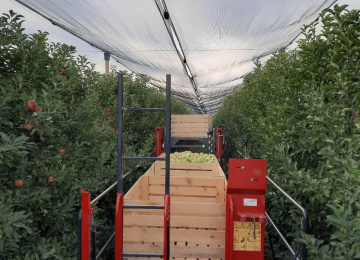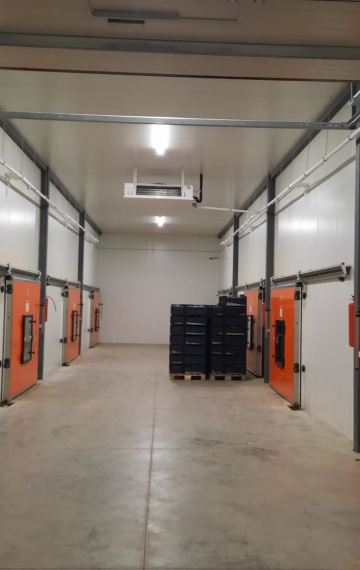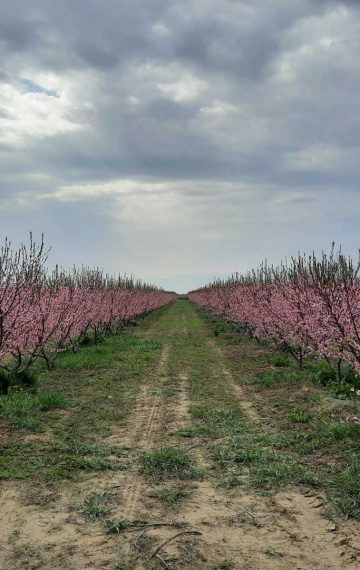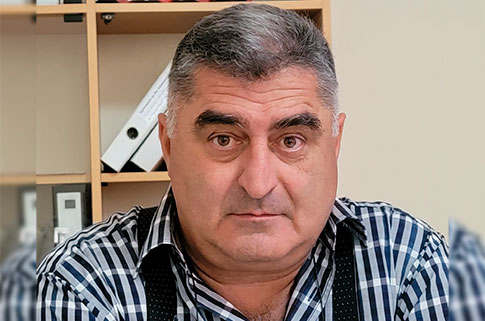
Fruit production business in Georgia developing rapidly with support from EU4Business and EBRD
Just five kilometres from the Russian-occupied Georgian breakaway region of South Ossetia, is the village Brotsleti in Gori municipality, and there, in hectares of fruit orchards, apples, plums, and peaches are growing. Between Tskhinvali and the orchards is the Administrative Boundary Line – the wire border fence that Russian frontier forces set up after the Kremlin’s brief war on Georgia in 2008.
The fruit orchards belong to two companies: LTD Garnet, which tends the fruit trees, and LTD ADGI, which has a cold-storage facility to make sure the companies’ products stay as fresh as the day they were picked. Their director is Gocha Ghviniashvili and one of the companies’ founders is Taras Nizharadze, who has been working as a businessman since 1990. Over the years, he has operated private companies in banking, tourism, natural resources, energy, and now – agriculture.
A couple of years back, Nizharadze founded a company that bought an old-style apple orchard. There, the planting densities, watering system, and other features of cultivation were vastly different from today’s methods. Everything was going to have to be changed.
“We found that everything they were doing in the old-style apple orchard was the story of yesterday,” says Nizharadze.
“Everything was so outdated that there was no point in reviving it. So, we bought the land and decided to create a more modern, ‘fruitful’ orchard.”
Nizharadze and his team planted the orchard’s first trees in 2015 and have been working hard ever since. Today it’s a densely planted orchard, with the trees just 80 centimetres from each other. They are watered with a drip-irrigation system, and part of the area is covered with an anti-hail net. Even though the companies own about 800 hectares of land, they only use just over 45 hectares for orchards, as this form of agriculture is very intensive – in both labour and capital. The new apple orchard is only about 12 hectares in size.
Soon enough, the team hit its first major challenge – it was almost impossible to harvest fruit and still maintain the high-quality of the products without advanced equipment. So Nizharadze looked for solutions abroad. He found some in Italy.
“When I first went to Italy, I was really surprised at the kind of technology they were using,” Nizharadze says. “I discovered that I didn’t really know much about the business that I was in.”
“For the entire growing cycle to work properly, you need new and advanced technologies, otherwise, your time and work are just wasted. You might have a good harvest, but products might just rot in storage if you put them in the wrong type of boxes.”
Nizharadze says they needed harvesting and fruit-picking equipment, huge fruit packaging boxes, and special carts to move them around – as well as a machine that would put apples in transport containers and then take them out.
“It’s a huge risk if people do it because they get tired and make mistakes,” Nizharadze explains. “You could just throw one apple into the box from a height, and it might rot and ruin the entire box.”
Luckily for Nizharadze, EU4Business and EBRD were there to help. LTD Garnet and LTD ADGI were awarded a credit through the EU4Business-EBRD Credit line – a joint initiative of the European Union and the European Bank for Reconstruction and Development. The initiative aims to help Georgian small- and medium-sized enterprises finance investments and seize the opportunities under the DCFTA, Georgia’s Deep and Comprehensive Free Trade Agreement with the EU, which was signed in 2014 and came into effect in 2016. In all cases, support is given so that companies can invest in new equipment and technologies that facilitate compliance with EU Directives.
With the necessary finances in place, the companies bought product transport carts in Poland and sorting machines in the Netherlands and constructed a building on the premises where apples are sorted and kept in a cold storage facility. They also now have a special bath filled with water, where boxes full of apples can be emptied, with the fruit floating to the surface without being damaged. Meanwhile, a camera on the sorting machine measures the size and colour of every apple and places them on storage shelves accordingly.
“Without this equipment, we wouldn’t have a business, we wouldn’t have the production process,” Nizharadze says. “We’d need three times more workers per kilogram of apples picked. We’d need more people and more energy to do the same work. And even in the end, we’d not be able to keep the fruit fresh without a well-equipped cold storage facility. (On receiving the grant) everything changed – from our financial situation to our physical capabilities, and the amount and quality of our products.”
Each year the companies face the risk of losing part of their harvest to frost. But buying expensive special frost protection equipment might not make economic sense, Nizharadze says.
“You might buy it, and then there is no frost for five years. You’ve spent money for nothing. And what price would you have to sell your apples for to cover these expenses?”
He is cautious about regarding future plans but has a couple of ideas on how his companies could develop further. One goal is to acquire advanced A.I. management systems with sensors placed deep in the ground that provide data on the state of the orchard, including humidity, the probability of disease, and other important indicators. The system can then make a detailed analysis of which land has problems, and might require more work.
Now that his orchard business’s working cycle has been perfected, Nizharadze wants to focus on the optimization of process management and set up a smoothly operating back office. But for that, he needs more staff. At the moment, his companies employ around a dozen staff full-time members and about 50 seasonal workers from nearby villages. Unemployment is a major problem in the Georgian countryside, especially close to the border, as there is little infrastructure.
“It’s difficult because there’s a lack of workers,” Nizharadze says. “A couple of local young people who work in our orchards decided to stay in the village and live here with their families. But we only employ a few people, and we can’t solve regional-level problems.”
“Still, it’s better than nothing!”

